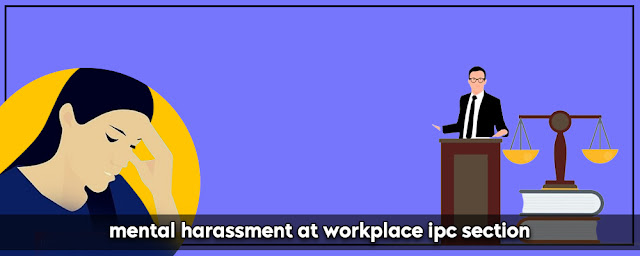Insight About Criminal Law
Every legal system must have criminal law because it determines how society reacts to and penalises illegal action. It is essential for upholding law and order, defending individual rights, and acting as a deterrent to criminal activity.
Fundamentals of Criminal Law
The presumption of innocence is one of the pillars of criminal law. According to this rule, a person convicted of a crime is presumed innocent until and unless proven guilty in court. This highlights the prosecution's burden of proof, which calls on them to present enough proof to persuade a judge or jury that the defendant is guilty beyond a reasonable doubt.
Mens Rea (guilty mind) and Actus Reus (guilty act) are two crucial components that determine whether or not someone is guilty of a crime. Mens Rea relates to the accused's state of mind or intent at the time the crime was committed, whereas Actus Reus refers to the actual physical act. In order to be found guilty of a crime, both factors must be established.
Criminal law uses the imposition of penalties on persons found responsible for offences to discourage criminal activity. Depending on how bad the crime was, these penalties might range from fines and rehabilitation to imprisonment or even a death sentence. The severity of the punishment is frequently intended to serve as a deterrent to future offenders.
Types of Criminal Offences
Depending on the type and severity, criminal offences are divided into different categories. There are a few types of offences-
Misdemeanour and Felony Offences
Less serious crimes known as Misdemeanours frequently carry fines or shorter jail terms. Simple violence and small-time theft are two examples whereas Felonies are significant offences that often carry longer prison terms. Murder, sexual assault, and armed robbery are a few examples.
Violent and Non-Violent Offences
Violent offences involve causing bodily injury or posing a threat of doing so to another person which includes murder, assault, and domestic abuse whereas in Non-Violent Offences there is no bodily injury, but it can still have a big cultural impact which includes narcotics offences, fraud, and other white-collar crimes, as well as burglaries and other property crimes.
Personal and Property Offences
Personal offences are committed against people rather than things which include homicide, kidnapping, and assault whereas Property offences include the theft or destruction of someone else's property including arson, theft, vandalism etc.
Offences involving Children
Children who are younger than 18 years commit juvenile offences. Justice systems frequently handle young offenders differently, emphasising rehabilitation over punishment.
Functions of Criminal Law
Anyone with an interest in criminal law must comprehend how the system of criminal justice operates.
Law enforcement authorities look into alleged crimes to start the procedure. They can conduct an arrest and take the person into custody if there is enough proof.
After the defendant is taken into custody, the prosecutor examines the available data before deciding whether to press charges. As it begins official criminal proceedings, this is a significant step in the legal procedure.
The defendant's first appearance in court, the arraignment, is when they are given the charges on them and requested to enter a plea. A guilty, not guilty, or no contest plea is acceptable.
A trial is held if the defendant enters a not-guilty plea. A jury or a judge decides whether the defendant is guilty or innocent after hearing the prosecution's and defence’s arguments.
In the event that the defendant turns out to be guilty, a different sentencing phase is then conducted, during which the court decides the proper sentence in light of the crime's circumstances and the offender's past.
If they feel mistakes were made during the trial, both the prosecution and the defence have the privilege to appeal the decision or punishment.
Offenders can serve their sentences after being found guilty in prison, on a probationary period, or through alternate means. Programs for rehabilitation are also available to assist offenders in reintegrating into society.
Any society must have a sophisticated and fundamental criminal law system in place to uphold order, safeguard individual rights, and discourage criminal activity. It is essential for both individuals and legal professionals to comprehend the criminal justice system's principles, classifications of crimes, and how it operates.
If you need the help of lawyers for your criminal cases in Faridabad, then Criminal lawyers in Faridabad can be hired. If you need the help of lawyers for your criminal cases in Ghaziabad, then Criminal lawyers in Ghaziabad can be hired. Similarly, Criminal lawyers in Delhi can be employed if you need the help of lawyers for your criminal cases in Delhi.
One can talk to a lawyer at Lead India for legal assistance. Free legal advice online can be obtainable at Lead India. Along with obtaining free legal advice online, one can also ask questions to the experts online free from Lead India.
Source:-
Visit us: — https://www.leadindia.law
Call Us: +91–8800788535
Email: care@leadindia.law
YouTube: — https://www.youtube.com/c/LeadIndiaLawAssociates
Facebook: — https://www.facebook.com/leadindialaw
LinkedIn: — https://www.linkedin.com/company/76353439
Twitter: — https://twitter.com/leadindialaw
Pinterest: — https://in.pinterest.com/lawleadindia
Instagram: - https://www.instagram.com/leadindialawofficial
Read Also:-
How To Select The Best Lawyer For Divorce?




Comments
Post a Comment